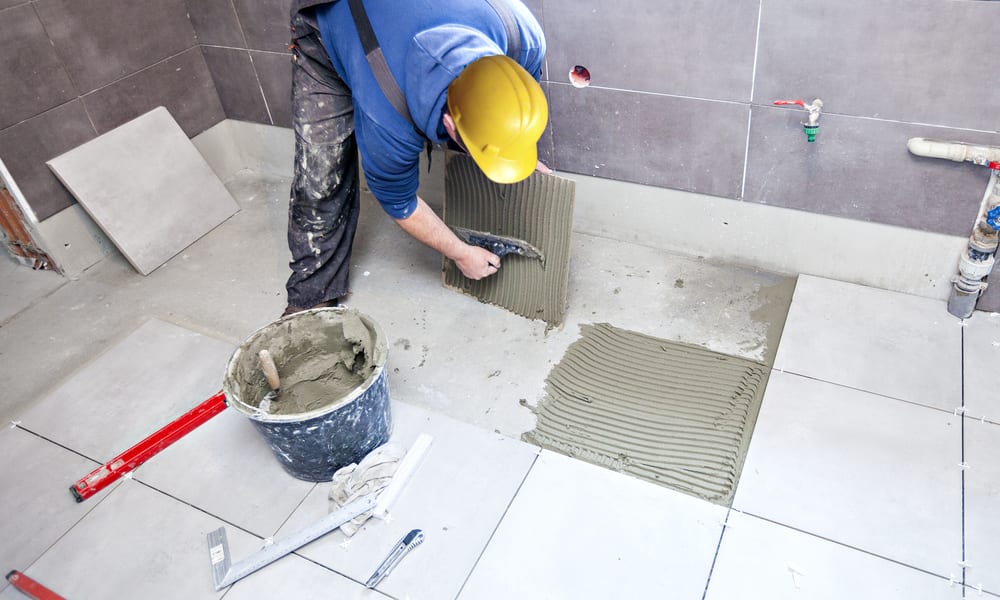DIY Garage Flooring Solutions: Options, Installation, and Maintenance
Transforming your garage floor doesn't have to be complicated or require professional installation. Many Australian homeowners are discovering the benefits of modern garage flooring options that combine durability with straightforward installation processes. From interlocking tiles to rollout mats, today's market offers numerous solutions that can be implemented by anyone with basic DIY skills. These garage floor coatings not only enhance the appearance of your space but also provide practical benefits like resistance to oil stains, chemicals, and everyday wear and tear.

Garage Flooring Options with Minimal Installation in Australia
The Australian market offers several garage flooring solutions designed for easy installation. Interlocking tiles have become increasingly popular due to their snap-together design that requires no adhesives or specialized tools. These tiles are typically made from durable PVC, polypropylene, or rubber compounds designed to withstand Australian climate variations.
Rollout mats represent another hassle-free option, requiring only measuring and cutting to fit your space. Made from vinyl, rubber, or polyvinyl, these mats offer immediate protection without complex installation steps. Many Australian suppliers also offer modular flooring systems that can be customized to fit unusually shaped garages.
For those seeking a more permanent yet still DIY-friendly solution, epoxy paint kits have evolved to become more user-friendly, with many Australian brands developing formulations specifically for the local climate conditions.
Benefits of Interlocking Garage Floor Tiles
Interlocking garage floor tiles offer numerous advantages that make them a standout choice for Australian garage owners. Their modular design allows for easy replacement of damaged sections without needing to redo the entire floor. This is particularly valuable in working garages where tools might be dropped or heavy equipment moved regularly.
The raised design of most interlocking tiles creates air circulation underneath, helping to reduce moisture buildup - a significant benefit in coastal or humid Australian regions. These tiles also provide excellent thermal insulation, making the garage floor more comfortable underfoot during both hot summers and cooler winters.
From a practical perspective, interlocking tiles can be installed over slightly imperfect concrete substrates without extensive preparation, making them ideal for older garages with minor cracks or unevenness. The variety of colors and patterns available also allows homeowners to create custom designs that complement their home’s aesthetic.
How to Install Garage Flooring Without Professional Help
Installing your own garage flooring is straightforward with the right preparation. Begin by thoroughly cleaning your existing concrete floor, removing all oil stains and debris. For interlocking tiles, start installation from a corner of the garage and work outward, using a rubber mallet to ensure secure connections between tiles.
When working with rollout mats, allow the material to acclimate to your garage temperature for 24 hours before installation. For precise fitting around obstacles, create paper templates first before cutting the actual flooring. Most Australian suppliers provide detailed instruction manuals specific to local conditions.
For epoxy applications, temperature control is crucial during installation. Australian homeowners should avoid applying these products during extreme temperature days, as this affects curing time and adhesion. DIY epoxy kits typically include all necessary materials, including primers, base coat, and optional decorative chips.
Comparing Interlocking Tiles vs Epoxy Flooring
When deciding between interlocking tiles and epoxy flooring, several factors deserve consideration. Interlocking tiles offer immediate usability—your garage can be functional immediately after installation. Epoxy, meanwhile, requires curing time of 24-72 hours depending on the product and environmental conditions.
Durability characteristics differ significantly between these options. Quality epoxy systems typically last 10-15 years with proper application but can be challenging to repair if damaged. Interlocking tiles generally offer 7-10 years of service but allow for simple replacement of individual damaged sections.
| Feature | Interlocking Tiles | Epoxy Flooring |
|---|---|---|
| Installation Time | 2-4 hours for average garage | 2-3 days including preparation and curing |
| DIY Difficulty | Low - requires minimal tools | Moderate - requires careful preparation |
| Durability | 7-10 years | 10-15 years |
| Average Cost (AUD) | $25-45 per square meter | $30-80 per square meter |
| Repair Ease | High - replace individual tiles | Low - usually requires large section redoing |
| Moisture Tolerance | Good - allows airflow underneath | Fair - can bubble if moisture issues exist |
Prices, rates, or cost estimates mentioned in this article are based on the latest available information but may change over time. Independent research is advised before making financial decisions.
Most Australian homeowners find interlocking tiles significantly easier to install without professional help. Epoxy applications require meticulous surface preparation, including etching the concrete and addressing any moisture issues. However, epoxy provides a seamless finish that many find more visually appealing for showcasing vehicles or creating a more finished look.
Customising and Maintaining Modular Garage Floors
One of the most appealing aspects of modular garage flooring is the ability to customize designs. Australian homeowners can create patterns using contrasting colors, incorporate logos, or designate specific zones for different activities. Many suppliers offer online design tools to visualize combinations before purchasing.
Maintenance requirements vary by material but are generally straightforward. For interlocking tiles, regular sweeping and occasional mopping with mild detergent is typically sufficient. Stubborn stains can be addressed by removing and cleaning individual tiles. Most quality tiles resist common garage chemicals, although harsh solvents should be wiped up promptly.
The modular nature of these systems also allows for future expansion or reconfiguration. This adaptability proves particularly valuable for growing families with changing storage needs or workshop requirements. Additionally, if you relocate to a new home, many modular systems can be disassembled and reinstalled in your new garage—an economic advantage that fixed flooring solutions cannot match.
Seasonal maintenance in Australia typically involves checking for any expansion issues during extreme temperature changes, particularly in areas with significant temperature fluctuations. Most quality products are designed with expansion gaps to accommodate these variations.



